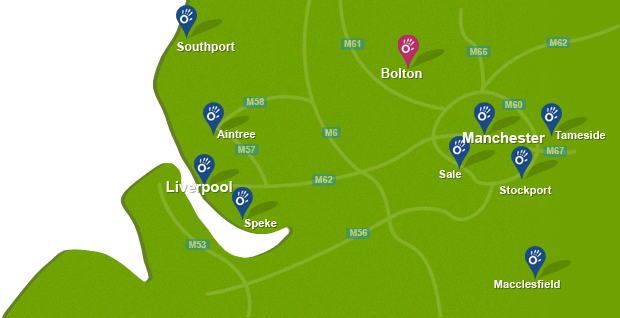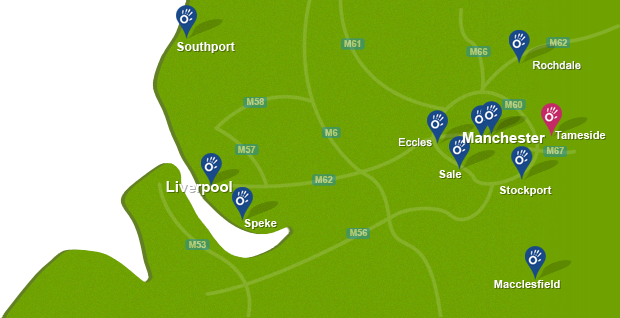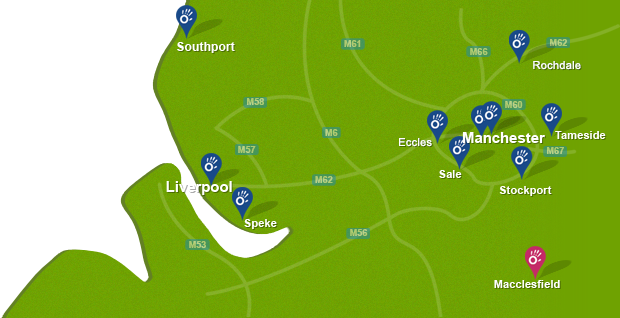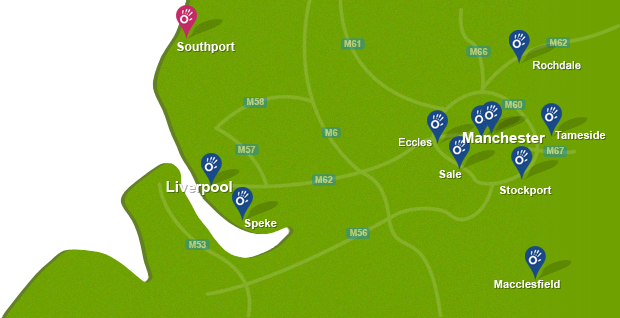What is shoulder instability?
Shoulder instability occurs when the structures that surround the shoulder joint do not work to hold the shoulder in the socket. If the joint is too loose, is may slide partially out of place, a condition called shoulder subluxation. If the joint comes completely out of place, this is called a shoulder dislocation. People with shoulder instability often complain of an uncomfortable sensation that their shoulder may be about to slide out of place.
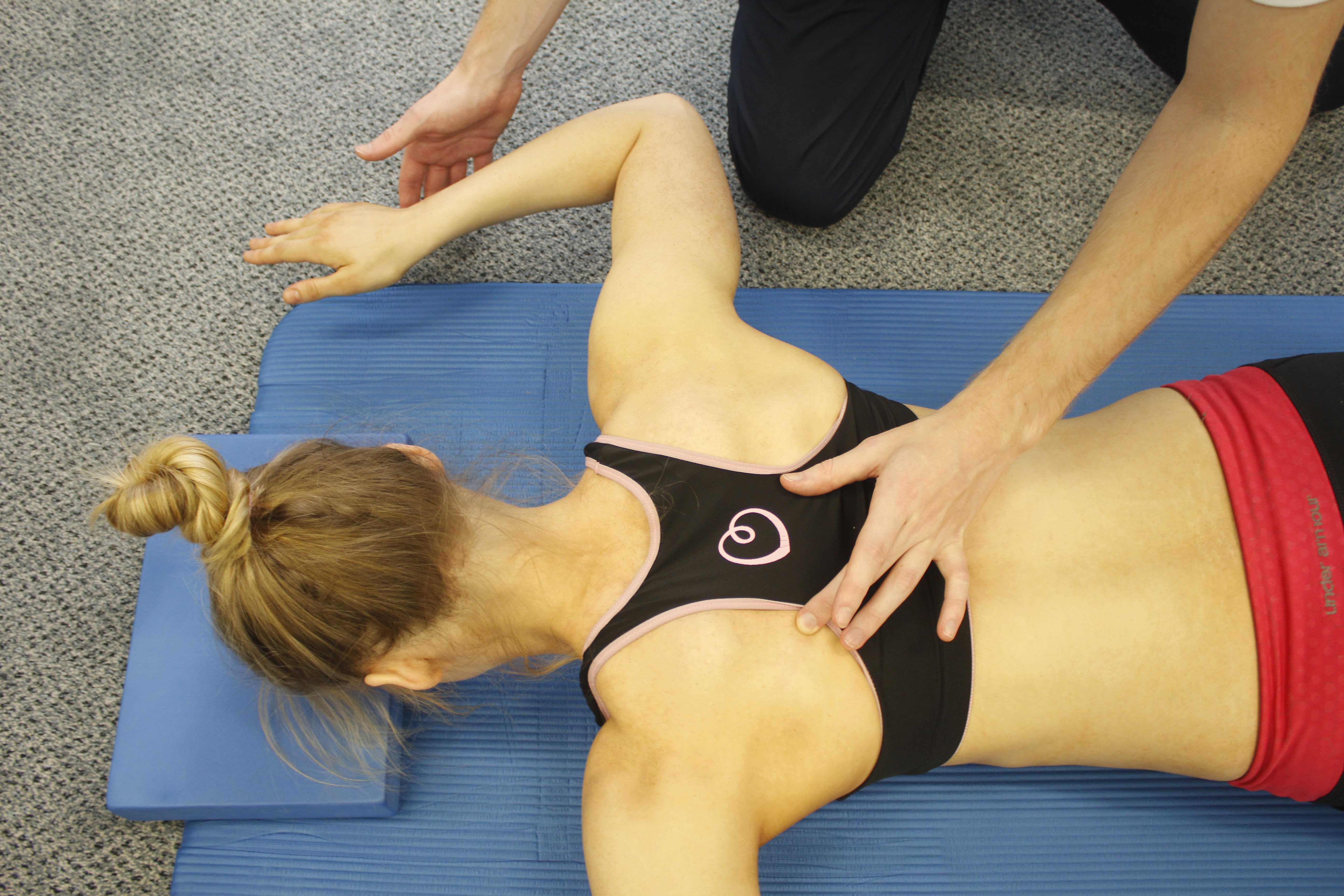 Above: Our physiotherapist teaching scapular setting with his patient.
Above: Our physiotherapist teaching scapular setting with his patient.What causes shoulder instability?
Causes of shoulder instability may include injury such as a shoulder dislocation. Following trauma the shoulder joint often remains unstable as the ligaments and cartilage that maintain the shoulder in the socket have become stretched or torn. In other cases, athletes such as volleyball players and swimmers, who do repeated shoulder movements may gradually stretch out the joint capsule making the shoulder muscles weak and causing the ball of the humerus to slip around too much within the shoulder. Eventually this can cause irritation and pain in the shoulder.
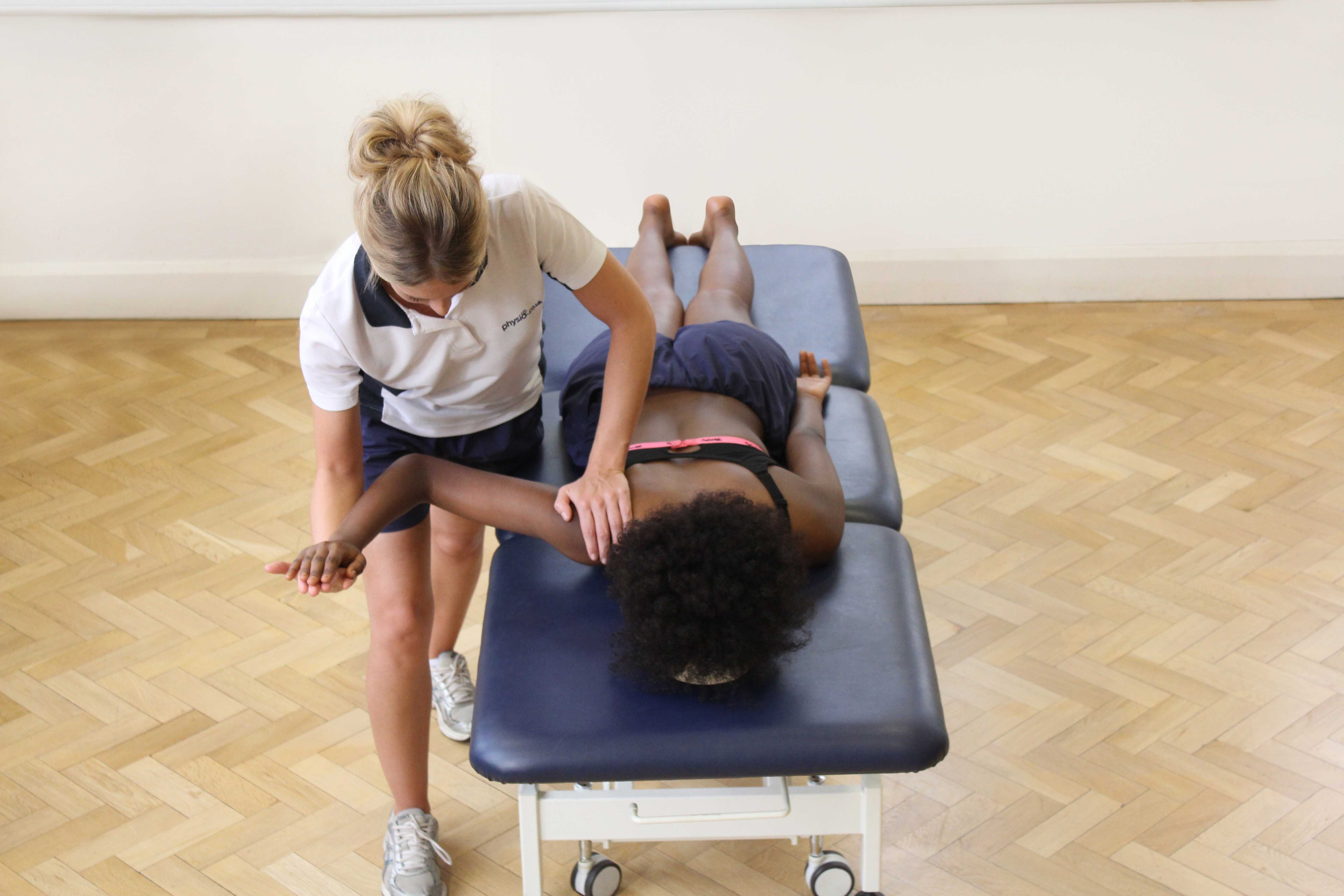 Above: Our physiotherapist assesing range of the shoulder
Above: Our physiotherapist assesing range of the shoulderTypes of shoulder instability
Shoulder instability may be forwards (anterior), backwards (posterior), downwards (inferior) or multidirectional.
Anterior instability - may be caused by either trauma, causing a dislocation, or atraumatic with a gradual onset. This type of instability is treated with an intensive rehabilitation program focusing on the strengthening of the rotator cuff muscles and scapular stabilising muscles.
Posterior instability - is most commonly seen in athletes. It is treated with strengthening and control exercises for the posterior stabilising muscles.
Multidirectional instability - is a combination of instabilities and is usually atraumatic. Multidirectional instability is often associated with joint hypermobility syndrome but can also be caused by repetitive trauma. Treatment involves strengthening of the shoulder stabilising muscles.
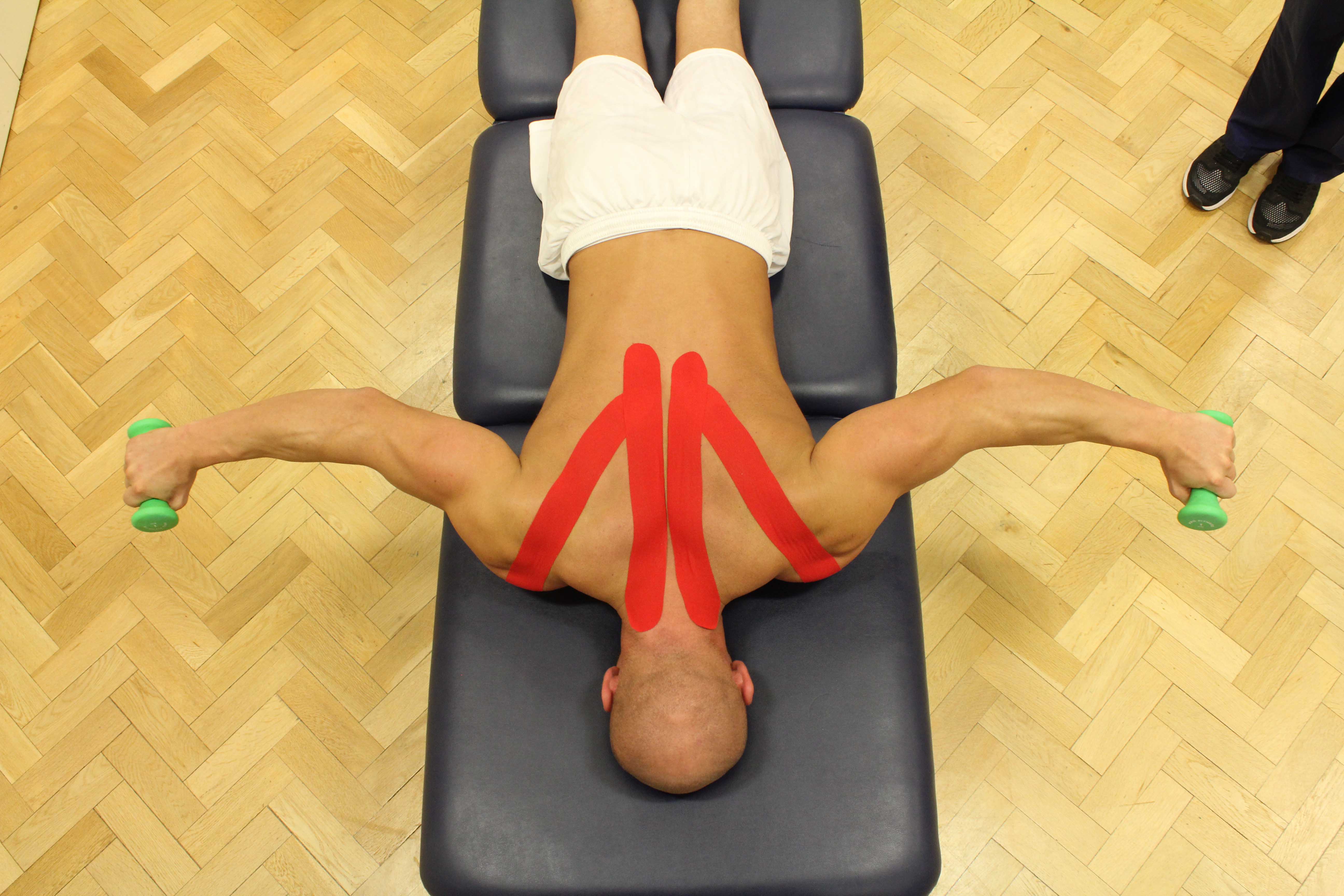 Above: Taping with strengthening exercises are effective for the management of shoulder instability.
Above: Taping with strengthening exercises are effective for the management of shoulder instability.Diagnosis of shoulder instability
A physiotherapist or your GP can diagnose shoulder instability primarily through your medical history and a physical examination. Your doctor may order an X-ray to help confirm that your shoulder was dislocated or injured in the past.
What are the symptoms/effects of shoulder instability?
Symptoms of shoulder instability include:
Subluxation - when the shoulder slips in certain positions, and the shoulder may actually feel loose. This commonly happens when the hand is raised above the head, for example while throwing.
Pain - if your shoulder subluxes the people usually experience a quick feeling of pain, like something is slipping or pinching in the shoulder
Frequent dislocations - this is usually very obvious and painful and the shoulder looks abnormal.
Physiotherapy for shoulder instability
At Manchester Physio, we provide specialised physiotherapy treatment for people with shoulder instability. Physiotherapy for shoulder instability will strengthen the muscles around the shoulder joint and help maintain the shoulder in a proper position.
Our physiotherapists at Manchester Physio integrate a global approach to rehabilitation incorporating the person's whole body.
Your rehabilitation program will be developed following an initial assessment and tailored to you, to ensure you get the most out of your treatment.
Our rehabilitation focuses on the strengthening of scapula stabilising muscles and shoulder stability muscles. This is achieved with closed chain rehabilitation, rotator cuff strengthening, plyometrics and proprioceptive exercises.
Your rehabilitation program at Manchester Physio will also be functional and specific to your individual lifestyle. Physiotherapy treatment modalities used may include swiss ball exercises, medicine ball work, electrotherapy and rubber resistance band exercises.
If you would like more information about physiotherapy for shoulder instability, or to book an appointment please call 0161 883 0077.


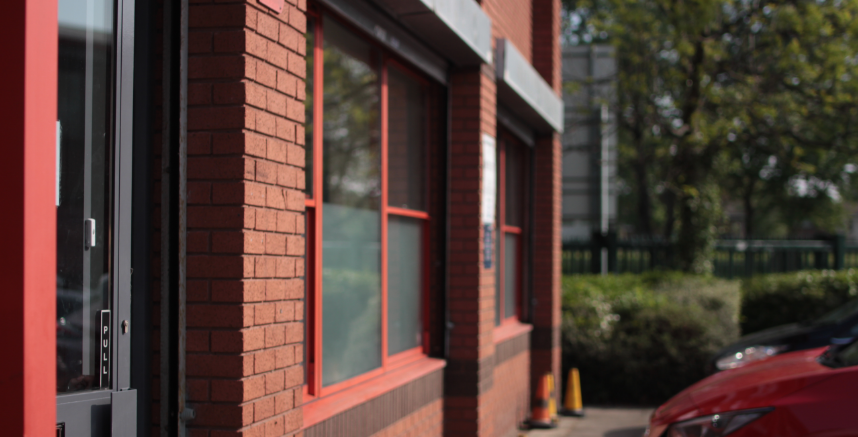
 0161 883 0077
0161 883 0077






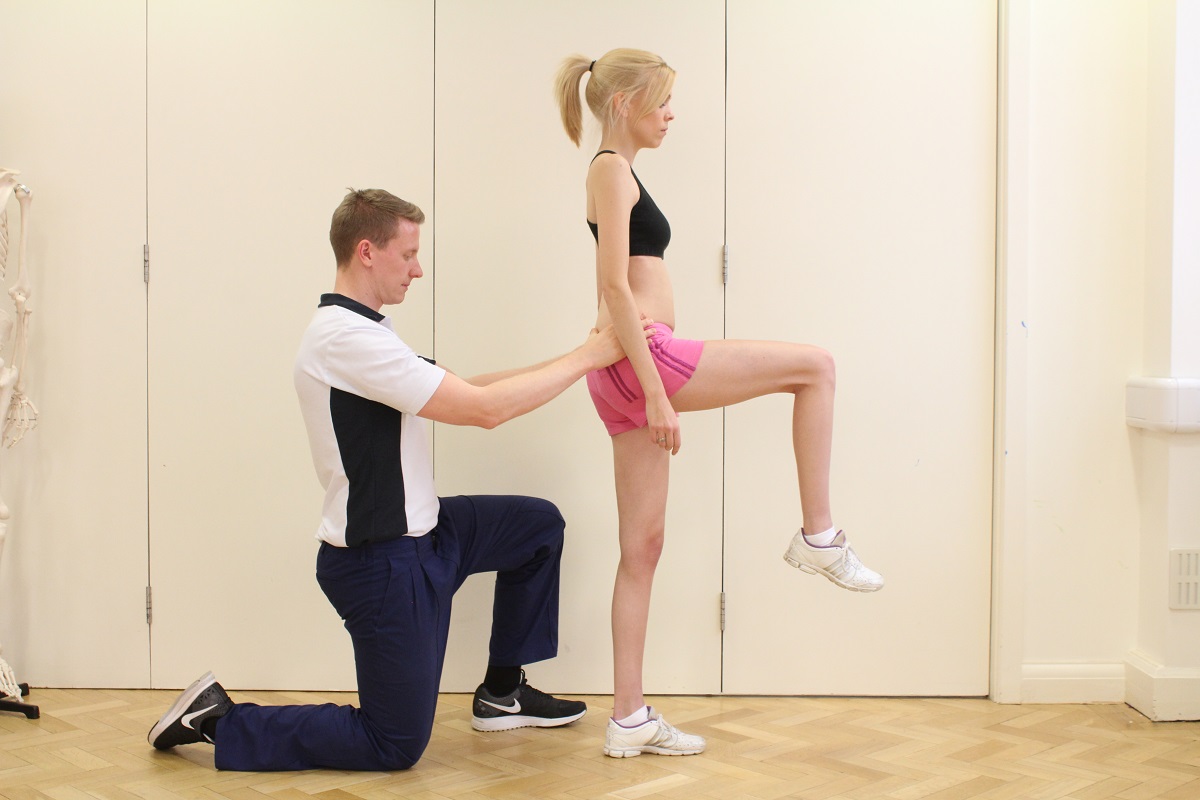
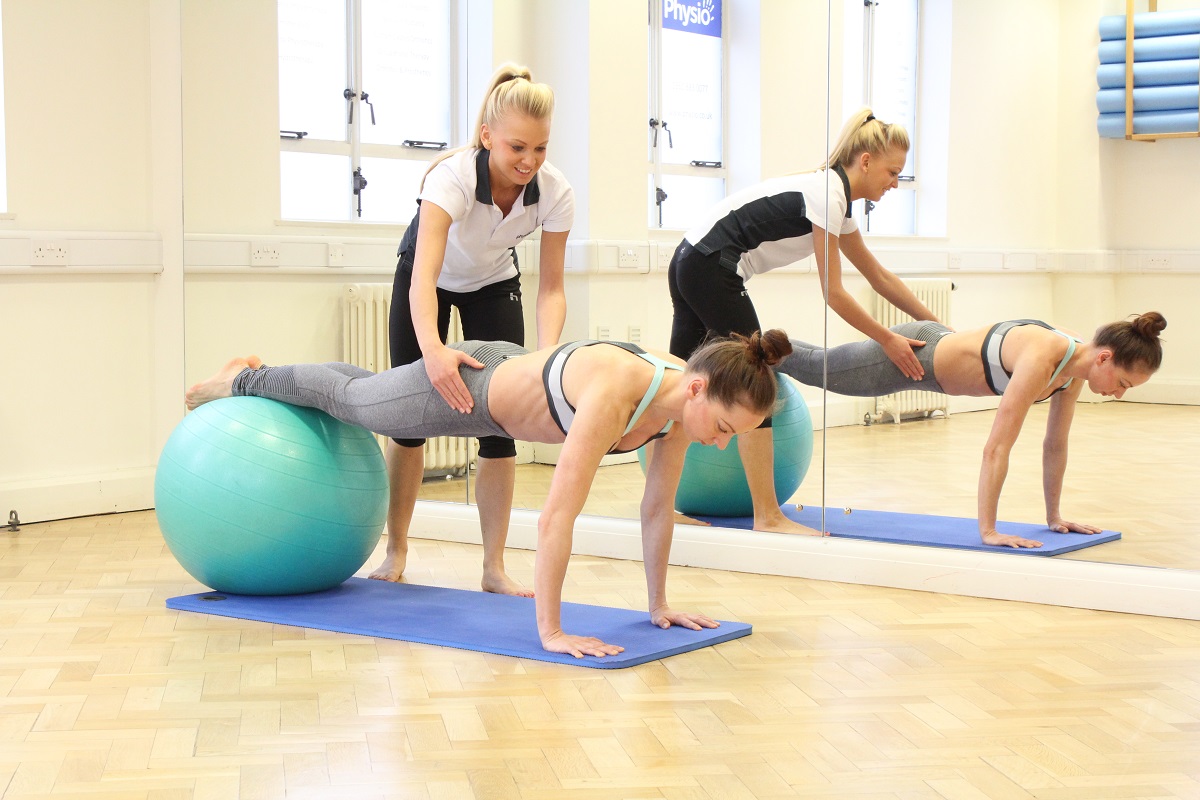
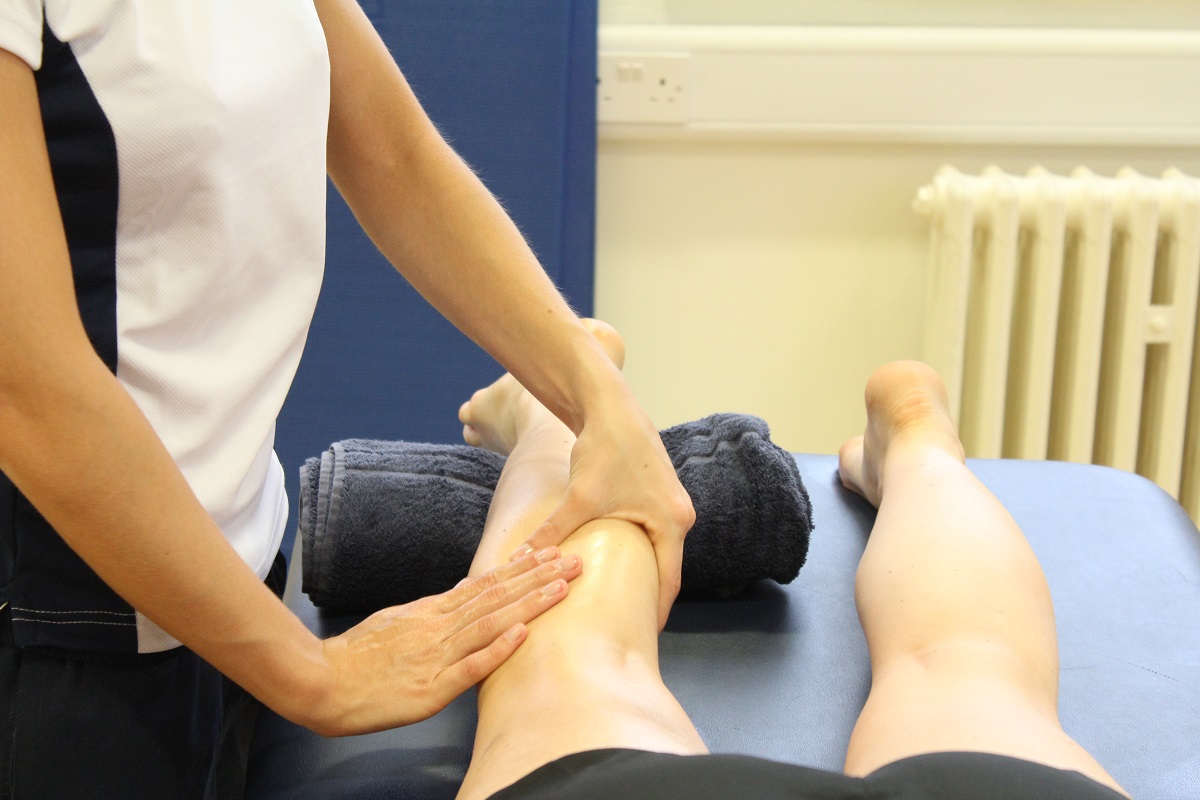
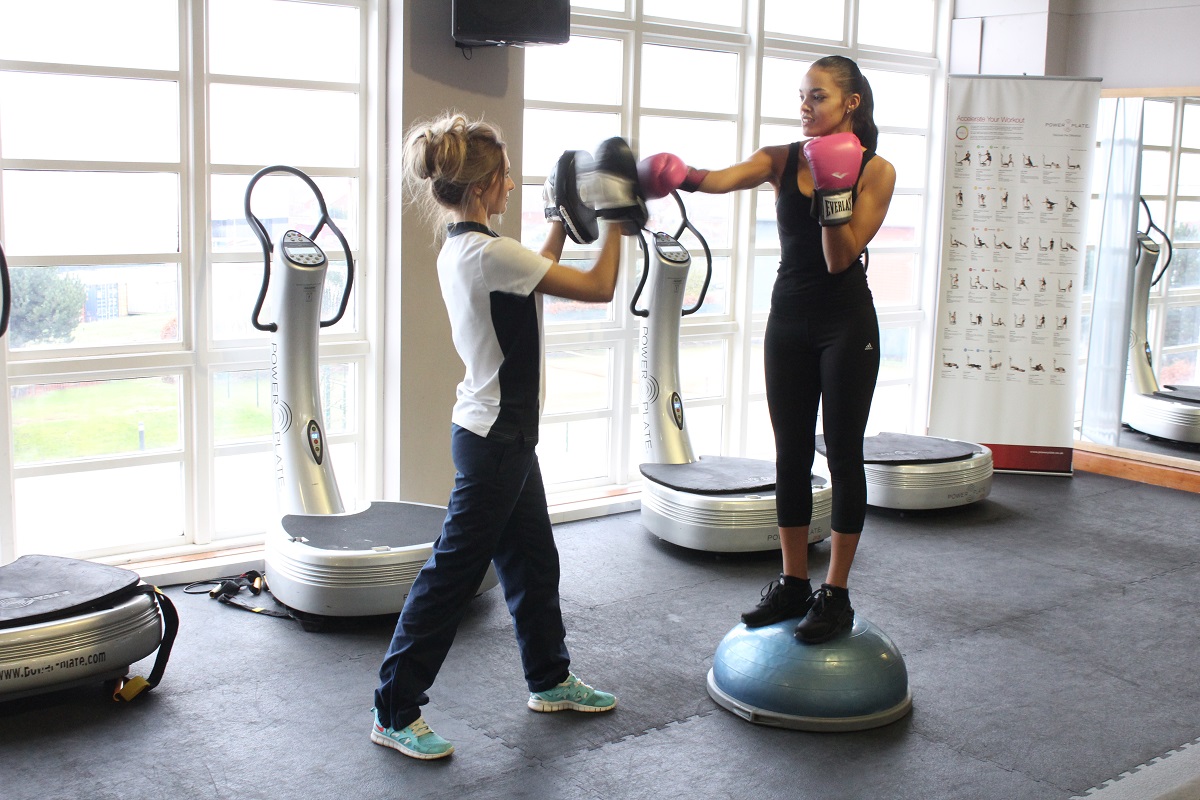


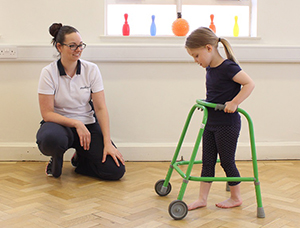
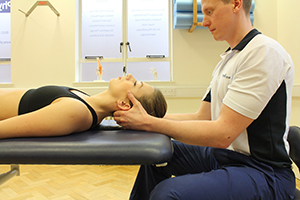


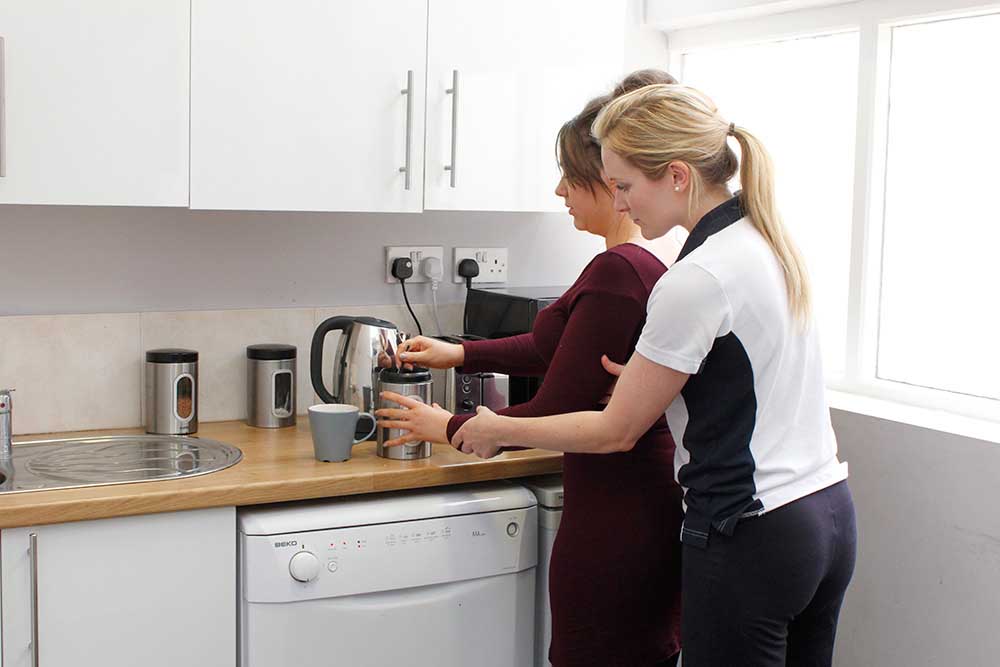



























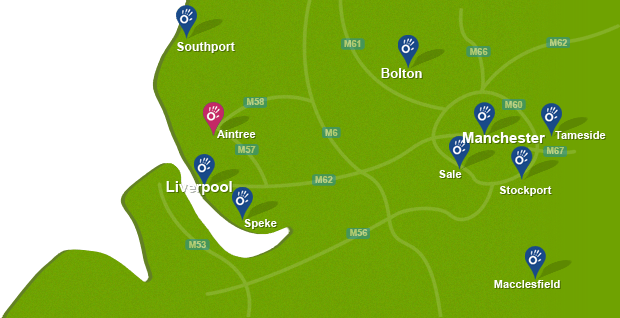

 f
f
